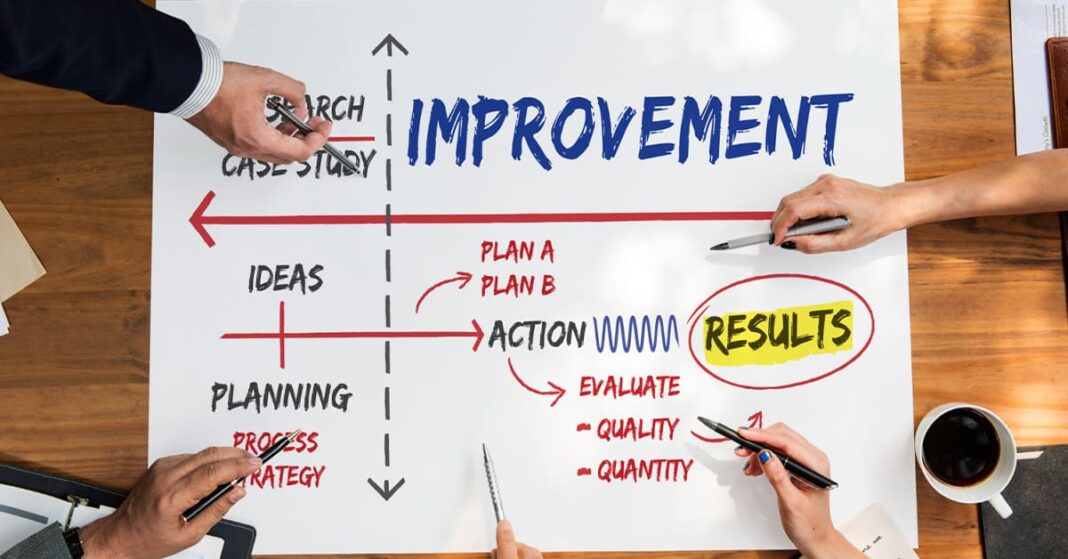Kaizen is a Japanese term that means “continuous improvement.” It is a philosophy and methodology that emphasizes making small, incremental improvements to processes, products, and services over time.
Here are some of the key principles of kaizen:
- Continuous improvement: Kaizen emphasizes the need for ongoing, incremental improvements in all areas of an organization. It encourages everyone to look for ways to improve processes, products, and services on a daily basis.
- Respect for people: Kaizen recognizes that people are an organization’s most valuable asset. It emphasizes treating employees with respect and involving them in the improvement process.
- Teamwork: Kaizen encourages collaboration and teamwork across departments and functions. It recognizes that improvement often requires input and expertise from multiple perspectives.
- Customer focus: Kaizen emphasizes the importance of understanding and meeting the needs of customers. It encourages organizations to continually improve their products and services to better meet customer needs.
- Standardization: Kaizen recognizes the importance of having standardized processes and procedures. It encourages organizations to establish clear standards and procedures for all processes to facilitate improvement.
- Waste elimination: Kaizen emphasizes the need to identify and eliminate waste in all forms, including time, materials, and energy. It encourages organizations to focus on creating more value with less waste.
- Visual management: Kaizen encourages the use of visual management tools and techniques to facilitate communication, understanding, and improvement.
- Pursuit of excellence: Kaizen encourages organizations to pursue excellence in all aspects of their operations, seeking to create a culture of continuous improvement that leads to ongoing success.
- Visual management: Kaizen uses visual tools, such as charts and diagrams, to communicate information and make it easier to understand.
- Focus on the customer: Kaizen puts the customer at the center of all activities, aiming to create products or services that meet their needs and exceed their expectations.
By following these principles, organizations can create a culture of continuous improvement that helps them stay competitive, improve quality, and enhance customer satisfaction.








